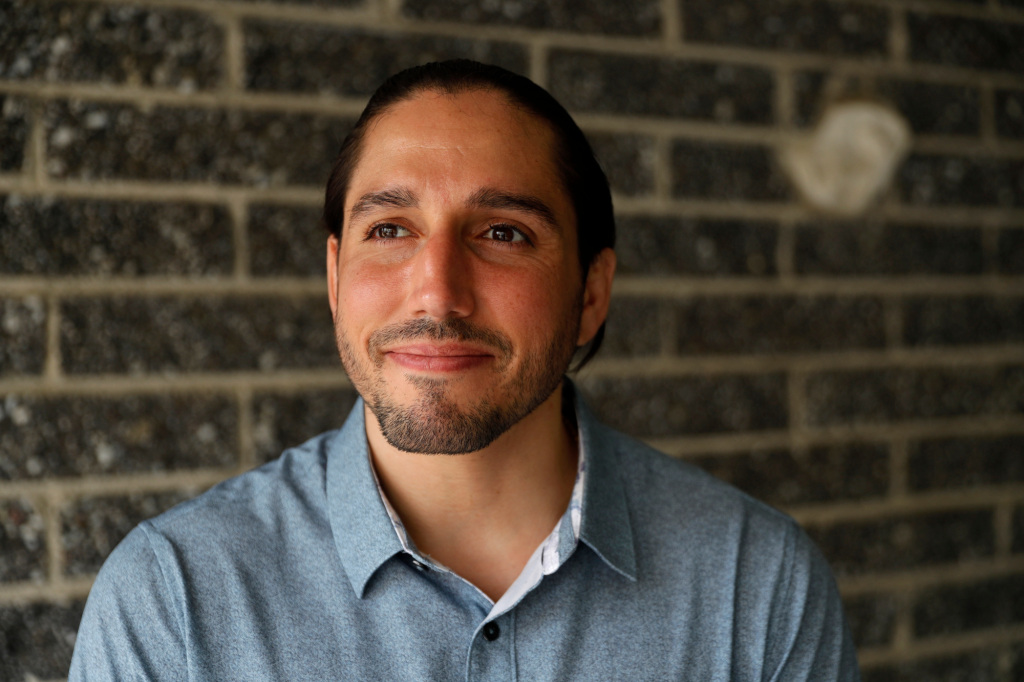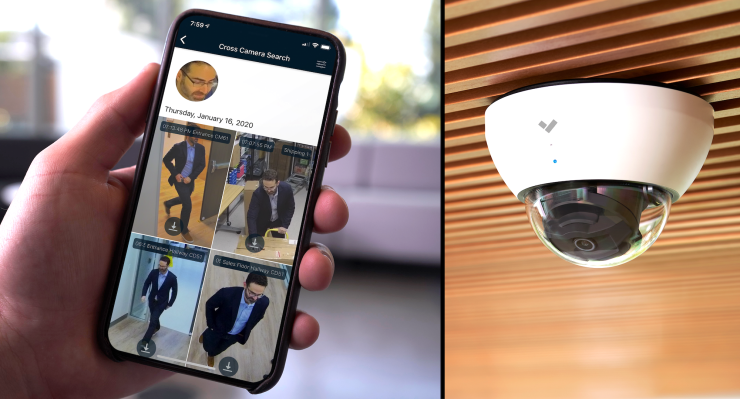In a San Francisco Bay Area saturated with visionary technology startups and overnight success stories, a little Oakland outfit called SquadCast might not register with those who aren’t immersed in the world of portable on-demand audio discussion programs known as podcasts.
But when you count marquee brands like Microsoft, ESPN, NPR and the New York Times among your customers, and are being name-dropped by none other than former U.S. President Barack Obama, you’re doing something very right.
Launched in 2017 as an audio and video cloud recording studio platform aimed at delivering superior sound quality to the podcast format, SquadCast achieved profitability just as the pandemic put the country in lockdown in March 2020 and has seen revenues grow tenfold since.
We sat down with co-founder and Chief Finance Officer Rockwell Felder — yes, over SquadCast — to talk about the wild ride and where they go from here. Edited for brevity and clarity.
Q: How would you describe SquadCast to people with only a passing knowledge of podcasting?
A: We help podcasters remotely record their shows with anyone in the world in studio sound quality.
Q: How did you and cofounder and CEO Zachariah Moreno get to know each other?
A: We both went to Christian Brothers High School in Sacramento. Zach and I became friends, we stayed in touch. His career was in software engineering and mine was in accounting and finance. He’d asked me before about doing something more entrepreneurial. At the time, I was looking do something entrepreneurial as well. We started to get this itch of wanting to do something independent.
Q: After high school you and Zach reconnected over technical issues with a sci-fi drama podcast, leading to the inspiration for SquadCast. What was the problem that brought you together, and how did you resolve it?
A: It was extremely difficult to record remotely in high quality. There was no service particularly built for that. Before SquadCast there was a lot of anxiety, a lot of pressure on podcast creators and also guests. The quality of your show is the best way to separate yourselves from rest of the shows in your category.
With Zoom and Skype, they’re recording over the internet, so your network connection determines what kind of quality you are going to get. SquadCast records all participants locally on separate tracks and automatically uploads the files to the SquadCast cloud.
Q: Do you recall the first podcase you ever listened to?
A: The first time I discovered podcasts, around 2007, I had the iPod Video, where you could watch videos on it. I saw this thing called “podcasts” and found this Freakonomics video. I was fascinated. That was the first podcast I listened to and it really just opened my eyes and ears to all this content I wasn’t finding in mainstream ways, not on the radio, not on TV, where you can really go deep into a topic that’s important to you. The other thing I love about it, it was on my schedule. With radio, you have to be there when it happens.
Q: At what point did you start to think of podcasts as a significant market as opposed to just an interesting hobby?
A: To me and Zach, podcasting was this incredible medium that wasn’t getting the recognition coming to it. I thought it was inevitable it would overtake radio and become the way people are consuming content. As podcasting grows in popularity, more folks will want to create their own shows, but there was not access to high quality studios. With SquadCast, the idea was they could meet with whomever they want and record wherever in the world. Podcasting as a business was picking up momentum around 2015-2016, and 2019, 2020 were big years. As an industry it had $1 billion in ad revenue in 2020. But radio is still bigger than podcasting, so I still think there’s a Wild West component to podcasting.
Q: The basic concept behind SquadCast, providing higher quality audio for an audio format, seems like a no-brainer that others already would have thought of.
A: That was the first healthy skepticism I had when Zach first proposed the idea, that this sounds amazing, this sounds like it should exist. But it didn’t. Shortly after we stated working on SquadCast, another company, Zencastr started. We almost dropped the project then. But when we did our research, we saw there was a lot left to be desired. We could take cues from what we were hearing in the community and build out the experience.
Q: SquadCast revenue was up 600% in 2020, and grew from 1,200 customers to 13,000 subscribers. Was the pandemic good for podcasting generally, or did SquadCast just have a good year?
A: No doubt COVID was an accelerator to our business. It accelerated the need and awareness for something like SquadCast. It definitely benefited podcasting in general — all podcasters had a good year. But also, a lot more businesses were starting to get into podcasting. I think SquadCast was uniquely positioned not only as a podcasting company but as a remote company. That was something we saw being the future but never could have anticipated before such a worldwide event like this.
Q: How does it feel to know some big names from inside and outside the podcasting world are using your product, from national tech journalist Kara Swisher to former President Obama?
A: Kara Swisher, I’ve been a big fan of hers for a long time. What was really cool about her, and a dream for me personally, was the way we found out was she was tweeting about us and tagging us in the tweet, thanking us for helping and talking about her experience. That was incredibly cool.
What was cool about Barack Obama — he was being interviewed, so it’s not like he’s a customer — but we don’t always know if people are recording on SquadCast. But they were actually talking about SquadCast in the interview, so there was no doubt. That was, like, extremely awesome. There are not many more famous and easily recognizable people than Barack Obama.
Q: How do you see SquadCast maintaining its meteoric growth after the pandemic?
A: I think a lot of the folks started doing this as a side project, and I think there will be some decrease in that kind of usage. But I think we are seeing a lot more professionalization of podcasting in general. And I think now, with so many people exposed to working remotely, a lot of folks enjoy the experience and I think there’s going to be a hybrid work model similar to what you’re seeing at some companies. For creators in general it’s easier to meet in a virtual studio, and with SquadCast, we have the studio for them.
We expect our newest release, with the first Dolby.io-to noise cancellation, and the larger number of guests allowed, upped to 10 people, to make a huge difference to podcasters. We released video recording on SquadCast in January, that’s helped continue this momentum that we’ve had. We felt it was really beneficial for podcasters to see their team and guests, and what we discovered was that even though podcasting is an audio medium, podcasters more and more wanted a video component. A great way to expand your audience is through YouTube, and that quickly became our most requested service.
The kids, they all want to be content creators, like their own micro media companies. They want to be YouTubers, podcasters. Technology is leveling the playing field, and technology like SquadCast enables them to compete on quality.
Rockwell Felder
Organization: SquadCastPosition: Co-founder and CFOAge: 33Birthplace: SacramentoResidence: OaklandEducation: Sacramento State University, bachelor of science, accounting and finance, 2012Family: Single
Five interesting things about Rockwell Felder
- Earned a Brazilian Jiu-Jitsu purple belt at Ralph Gracie Jiu-Jitsu in Berkeley
- Co-hosts the Between Two Mics podcast with SquadCast co-founder/CEO, Zach Moreno
- Enjoys traveling to new venues for live deep house music shows
- Started his career as a CPA
- Loves supporting local businesses by checking out different restaurants and coffee shops in the East Bay










